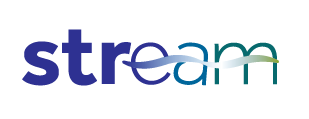Unit 1: The Reference Context
Unit 1 refers to knowledge of the regulatory context, at national and European level, for digital competency.
Unit 2: Planning WBL experiences
Unit 2 includes the knowledge and practical skills needed to perform the role of WBL/mobility organizer, with the use of digital tools such as databases, monitoring platforms and tracking tools.
Unit 3: Implementing WBL experiences
Unit 3 includes the knowledge and practical skills to enhance the interaction, collaboration and sharing among the different actors of the process making use of appropriate digital tools.
Unit 4: Monitoring and assessment of WBL experiences
Unit 4 includes the knowledge and skills needed for formative and summative assessment of learners' progress during the WBL experience
Unit 5: Upskilling and innovation
Unit 5 includes knowledge management and networking to stay updated on technological developments in the digital sector and understand the impact of technologies such as AR, VR and AI on WBL.
Unit 1: The reference context
Unit 1 combines knowledge on the key concepts of sustainability and the ability to apply these concepts in the working and training context, also through a terminological glossary.
Unit 2: Planning WBL experiences
Unit 2 includes the knowledge and practical skills needed to plan WBL experiences incorporating sustainable practices applied in various industrial sectors
Unit 3: Implementing WBL experiences
Unit 3 includes the knowledge and practical skills to enhance sustainable practises in different industrial sectors and aligning WBL experiences with these practices.
Unit 4: Monitoring and assessment of WBL experiences
Unit 4 integrates knowledge and skills on environmental assessment processes with attitudes oriented towards sustainability and reducing the environmental impact of work activities.
Unit 5: Balancing environmental impacts in WBL mobilities
Unit 5 integrates knowledge on environmental assessment processes with attitudes oriented towards sustainability and reducing the environmental impact of work activities.
Unit 1: The reference context
Unit 1 focuses on the theoretical and practical understanding of diversity, structural inequalities and barriers that influence apprentices and trainees, considering aspects such as intersectionality.
Unit 2: Planning WBL experiences
Unit 2 refers to the ability to reduce the impact of discrimination (racism, sexism, ableism, homophobia, transphobia, etc.).in organizing WBL mobilities.
Unit 3: Implementing WBL experiences
Unit 3 focuses on practices and strategies to create inclusive, safe and respectful learning environments for all participants, both in company's context corporate settings and in VET centers
Unit 4: Monitoring and assessment of WBL experiences
Unit 4 includes the knowledge and skills needed for the assessment of the effectiveness learners' inclusion.
Unit 5: Continuous improvement of inclusive practices in WBL mobilities
Unit 5 includes the ability to critically reflect on implemented inclusion practices, collect feedback from participants and pursue continuous improvement to optimize future WBL and mobility experiences from an inclusive perspective.
